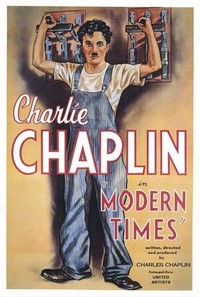
Modern Times (1936)

Raiting: ![]() 8,4 /10
8,4 /10
Genre: Comedy
Director: Charles Chaplin
Stars: Charles Chaplin, Paulette Goddard and Henry Bergman
Country: United States
Release date: 5 February 1936
Length: 87 minutes


Raiting: ![]() 8,4 /10
8,4 /10
Genre: Comedy
Director: Charles Chaplin
Stars: Charles Chaplin, Paulette Goddard and Henry Bergman
Country: United States
Release date: 5 February 1936
Length: 87 minutes